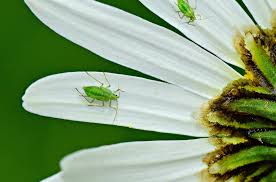How to Deal with Unwanted Pests in Your Garden
A beautiful garden can be a sanctuary of peace and relaxation, but unwanted pests can quickly disrupt this tranquility. Dealing with garden pests effectively requires a combination of preventative measures and active control strategies. Here’s a comprehensive guide to help you manage and eliminate unwanted pests from your garden.
In this guide:
Identifying Common Garden Pests
Before you can effectively deal with pests, it’s important to identify which ones are causing problems in your garden. Common garden pests include:
- Aphids: Small, sap-sucking insects often found on the underside of leaves.
- Slugs and Snails: Mollusks that leave a trail of slime and chew holes in leaves and stems.
- Caterpillars: Larvae of moths and butterflies that feed on leaves.
- Whiteflies: Tiny, white-winged insects that feed on plant sap.
- Spider Mites: Microscopic pests that cause yellowing and stippling on leaves.
Preventative Measures
Maintain Healthy Soil
- Healthy plants are less susceptible to pests. Use compost and organic matter to enrich your soil, and ensure proper drainage to prevent root diseases.
Plant Resistant Varieties
- Choose pest-resistant plant varieties when possible. These plants are bred to be less attractive or more resilient to common pests.
Encourage Beneficial Insects
- Attract beneficial insects like ladybirds, lacewings, and predatory beetles that feed on pests. Planting flowers such as marigolds, daisies, and yarrow can help attract these helpful insects.
Companion Planting
- Certain plants can deter pests when grown alongside each other. For example, planting basil near tomatoes can repel aphids and whiteflies.
Keep Your Garden Clean
- Regularly remove debris, fallen leaves, and dead plants from your garden. This reduces hiding places for pests and disrupts their breeding cycles.
Active Pest Control Strategies
Natural Predators
- Introduce natural predators like ladybirds for aphids, or nematodes for soil-dwelling pests. These predators help control pest populations without harming your plants.
Handpicking
- For larger pests like slugs, snails, and caterpillars, handpicking can be effective. Visit your garden early in the morning or late in the evening to catch these pests in action.
Homemade Sprays
- Create homemade sprays using natural ingredients. A mixture of water and dish soap can deter aphids, while neem oil can repel a wide range of pests.
Barriers and Traps
- Use physical barriers such as row covers and cloches to protect your plants. You can also set up traps, like beer traps for slugs and snails.
Organic Pesticides
- If natural methods aren’t sufficient, opt for organic pesticides. These are less harmful to the environment and non-target organisms compared to chemical pesticides.
Professional Pest Control
If your pest problem is severe or persistent, consider seeking professional help. At Go Pest Control London, we offer expert pest control services to ensure your garden remains a beautiful and pest-free haven. Our team uses safe and effective methods to tackle even the most stubborn pest infestations.
Visit Go Pest Control to learn more about our pest control services and how we can help you maintain a healthy, thriving garden.
